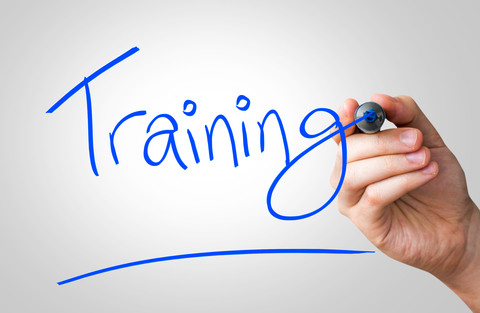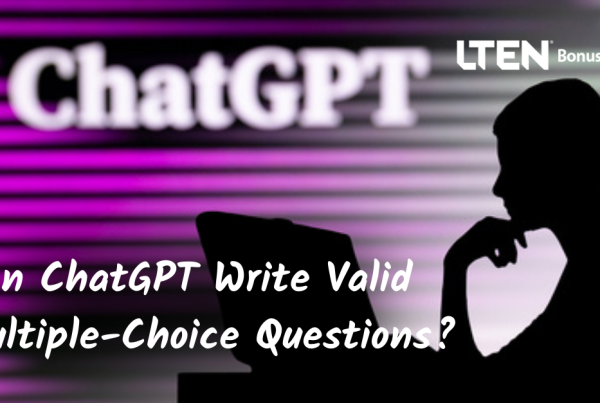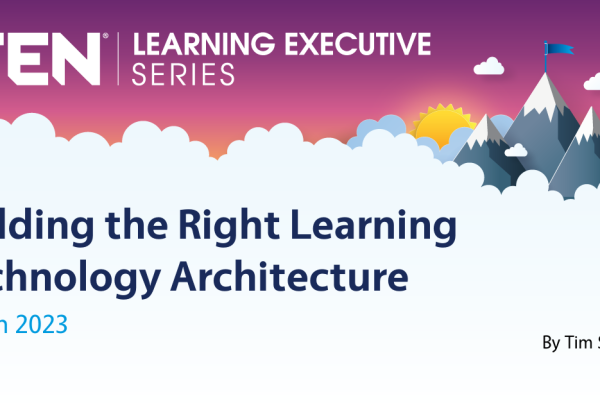
Choosing learning technologies for field-based training can quickly become a daunting task, so I put together a short list of my top picks (both electronic and non-electronic) to help you narrow the choices and improve your outcomes.
Knowledge Training
Pronunciation Software
Terms and vocabulary are the “building blocks” of any learning process, but are especially important when onboarding new sales reps or launching a new product. Unfortunately, if the learner hasn’t heard a word or term pronounced properly, the pronunciation of that word is often left open for interpretation.
One of the most helpful technologies I’ve seen utilized to help learners become comfortable using new vocabulary is pronunciation software. Pronunciation software is software that first helps learners to understand the word’s meaning and then hear both its proper pronunciation and use in a sentence. Most importantly, the software prompts the learner to verbalize the word…which eliminates mispronunciation and greatly increases the learner’s confidence in speaking the word or using it in conversation.
Information Mapping
I can’t tell you how much time I’ve spent in my career rewriting learning modules and/or directions that were inconsistent, unclear and confusing … or rambled away from the pertinent facts. I’ve all too often learned that just because someone is a “medical writer” or a “subject matter expert” does not mean that they know how to write so that learners can actually learn from their writing.
Information mapping is a non-electronic “technology” designed to help trainers organize their writing. It is a research-based writing methodology used to analyze, organize and present information, based on the learner’s needs and the purpose of the information. It was developed by Robert Horn back in the 1960s as a way to make technical business communications easier to understand. The outcome was quicker and more complete comprehension by learners accompanied by improved knowledge retention.
The methodology is strict, but in my experience, if you merely follow its most significant rules – chunking, labeling, related graphics, consistency and organizing information into hierarchies – your self-paced knowledge training and communications will become significantly easier to understand and learn.
Mobile Device Delivery Apps
Some of the most interesting advancements in learning technology have happened just recently in the area of mobile apps. Although sorting through the sheer multitude of offerings can prove to be a bit overwhelming, the ability to push out small chunks of information (facts, communications, updates, video clips, etc.) represents a true breakthrough for field-based training that will make it well worth the effort.
My one caveat would be to use this technology sparingly; the last thing that sales representatives want is a never-ending stream of texts from the home office.
Live Internet Streaming
Seems like almost every company I speak with wants to take their live training and deliver it online. The problem is that the internet is not an appropriate delivery system for all types of training.
For training that calls for high attention and/or interaction (product knowledge, strategy development, brainstorming, Q&A, etc.) live internet streaming may be the answer. Live internet streaming gives you the ability to run live sales meetings online with interactive chat, multiple camera angles and Q&A sessions, greatly upping interest and engagement levels for what can often be very boring one-sided webinars, PowerPoint presentations or corporate announcements.
Memory Encoding
Unfortunately, just because a learner heard it or read doesn’t necessarily mean that they will remember it … or remember it very well. When a rep engages a doctor in a product conversation, they need to be accurate, quick and confident in their answers. Any hesitation or uncertainty undermines both their credibility and sales effectiveness. This level of fluency or mastery requires mental rehearsal and reinforcement. The following are my top three picks for memory reinforcement.
• Mastery Cards. Strong memory reinforcement requires repeated cycles of action and reflection, repetitive practice that deeply encodes information into learners’ long-term memory so they can quickly and confidently retrieve it when they need it. Mastery cards are analogous to flash cards and can be either electronic or physical. The main difference between flash cards and mastery cards is that learners must be able to verbally speak every correct answer within a given time frame … and they are required to practice with the cards until they are able to reach a pre-set standard for accuracy and speed.
• Testing Engines. Forgetting happens over time, so consequently it is important to check and reinforce learning over time. Testing engines are automated online systems that distribute test questions to learners through their phone or mobile device over a period of time to check and reinforce learning. The newest platforms use learning algorithms based on the latest developments in neuroscience to deeply encode new information into the long-term memory of learners, a big win in assuring that reps will remember what they need to remember, when they need to remember it.
• Job Aids. Sometimes, all learners need to remember information is a little prompting. Job aids are devices or tools (reference cards, memory joggers or wall charts) that are designed to mentally prompt a learner to either remember or be able to quickly access the information they need to perform a task. Job aids summarize the key facts for a given topic to “jog” a learner’s memory when they are trying to remember or apply the information they had “learned” from their training.
Skills Training
Recording Pens
After conducting hundreds of hours of sales coaching, I can tell you with confidence that a rep’s memory of what happened during a call is often quite different from what actually happened during the call. Recording pens are recording devices that look like pens (and sometimes even have pens in them) that you can put in a pocket or clip to a purse, planner or clipboard. They allow you to surreptitiously record a sales call and then review it once you get back to the car. Check local laws about recording conversations before you use them but I can tell you that it’s one of the most powerful tools I’ve ever used to review sales performance. Allowing you to talk about what actually happened versus what you and the rep thought happened … the discrepancy might surprise you!
Virtual Role-Play
In my opinion, virtual role-play software is the most exciting technology that has hit the training world in years. Gone are the days of having to wait (sometimes multiple months) to bring a representative in-house to check on their sales and presentation skills.
Virtual role play software allows representatives to practice until they are ready, video-record their performance and then send that file to their manager, field trainer and/or back to the corporate office. The video can then be critiqued by a variety of qualified evaluators that can give feedback and coaching to the rep at a distance, something we have never been able to easily do before.
As a further bonus, the outstanding video performances can become “best practices” that can then be used to train new hires.
Onboard Cameras and Phone Cameras
Another great new technology (or should I say the refinement of a technology) are wearable and phone-based video cameras. The ability to wear a small camera or quickly and easily create high quality video with one hand opens up a whole new world for field-based training. Do-it-yourself video clips can be used for training on topics as varied as exploring a new sales environment or coaching a sales call to more mundane topics like organizing a trunk or sample storage.
So those are my top technology picks for field-based training. I can assure you that if you can successfully integrate them into your process, you will improve both your training and learning outcomes. Best of luck!
Rick Simoni is the founder and president of The Sales Co., a San Diego-based organization specializing in the development of sales force competency and performance. He is also the author of “The Buying Mind…Unlocking the Secret of Sales Acceleration,” an Amazon No. 1 bestseller in Business & Money! Rick can be reached at Rick@TheSalesCo.com or at his website, TheSalesCo.com.
For more information on learning technologies, look for Rick Simoni’s article, “Learning Technologies for Event-Based Training,” in the Spring 2016 issue of Focus magazine, coming in February 2016.








